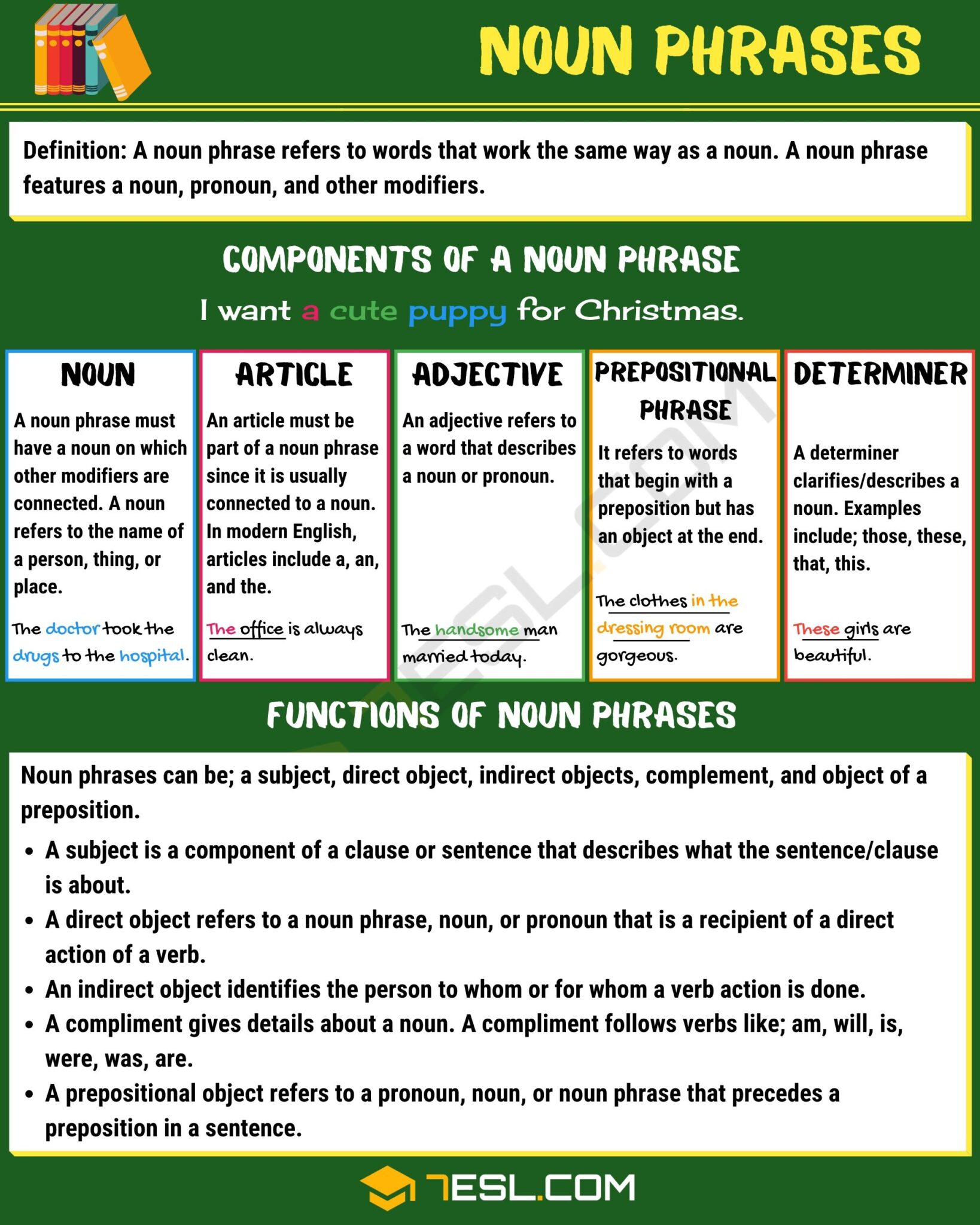What Is Noun Clause / Function of Noun Clause In a Sentence - Learn ESL / Like all clauses, a noun clause has a subject and a verb.. Noun clauses consist of a clause preceded by a subordinating conjunction. It might be a noun clause. Noun clauses are subordinate clauses or dependent clauses that perform eight grammatical functions. A noun clause can act as subjects, objects (direct objects and indirect objects), predicate nominatives, complements, or objects. A noun clause is that contains a finite verb and functioning like a noun within a sentences.
Note that a noun clause cannot stand alone. Noun clauses often use words such as when, what, why, who and other question words, but the speaker may or may not be making a question. What she wore to the party. It can be used as the subject, direct object, indirect object, object of a preposition, subject complement, or appositive. A noun is the name of a person, place, thing, or idea.
Noun clauses can act as subjects, direct objects, indirect objects, predicate nominatives.
Noun clauses can act as direct objects, subjects , indirect. A noun clause functions as noun in a sentence. The two forms of noun clauses in the english language are finite noun clauses and nonfinite noun clauses. It must always be paired with an independent (main) clause. Noun clauses can also be an object of a noun clause: A noun clause is a dependent clause that acts as a noun. • no one knows who he is. The noun clause is a clause that functions like a noun in the sentence. Noun clauses can act as subjects, direct objects, indirect objects, predicate nominatives. A noun clause is a dependent clause that functions as a noun. What i had forgotten was that i had a test today. What is noun clause, example sentences I have a surprise for whoever wins the race.
It is a direct object in this sentence. A noun clause is a dependent clause that functions as a noun. A noun clause can act as subjects, objects (direct objects and indirect objects), predicate nominatives, complements, or objects. For example (noun clauses shaded) (this noun clause is the direct object of ask.) he knows all about art, but he doesn't know what he likes. A noun clause can function as what you have done pleased so many fans.

• noun clauses what's a noun clause?
Noun clauses can act as direct objects, subjects , indirect. A noun clause is a dependent clause that contains a subject and a verb. I knew exactly how clouds drifted on a july afternoon, what rain tasted like, how ladybugs preened and caterpillars rippled, what it felt like to sit. Why he did that is a mystery. …what you have learned. this clause is a noun clause. Noun clauses are a type of subordinate clause. A noun clause is a dependent clause that functions as a noun. A noun is the name of a person, place, thing, or idea. A noun clause can begin with a question word. For example, if the sentence asks do you know what time we are leaving? the noun clause is what time we are leaving? you can't easily substitute a noun here. How, that, what, whatever, when, where, whether, which, whichever, who, whoever, whom, whomever, and why. The clauses given below are all examples of noun clauses. • noun clauses what's a noun clause?
A noun clause cannot stand alone because it is not a complete thought. Noun clauses generally begin with words such as how, that, what, whatever, when, where, whether, which, whichever, who, whoever, whom, whomever, and why. A noun clause or nominal clause is a dependent or subordinate clause that does the work of a noun in a sentence. Noun clauses are a type of subordinate clause. It is a direct object in this sentence.
Noun clauses generally begin with words such as how, that, what, whatever, when, where, whether, which, whichever, who, whoever, whom, whomever, and why.
A noun clause is a group of words that contains a subject and a verb. A noun clause is a dependent clause that acts as a noun. Let's do a quick review of these two important terms. Noun clauses come after the words such as how, that, what, whatever, when, where, whether, which, whichever, who, whoever, whom, whomever , and why. A noun clause refers to a clause that serves the same purpose as a noun and is usually dependent. A noun clause or nominal clause is a dependent or subordinate clause that does the work of a noun in a sentence. …what you have learned. this clause is a noun clause. How, that, what, whatever, when, where, whether, which, whichever, who, whoever, whom, whomever, and why. Whatever, whichever, whoever, whomever, how, what, when which, whether, whom, who, why at the beginning. Noun clauses are clauses that function as nouns. A noun clause answers the question of what a person is thinking. What does noun clause mean? It serves the same purpose as a noun.
